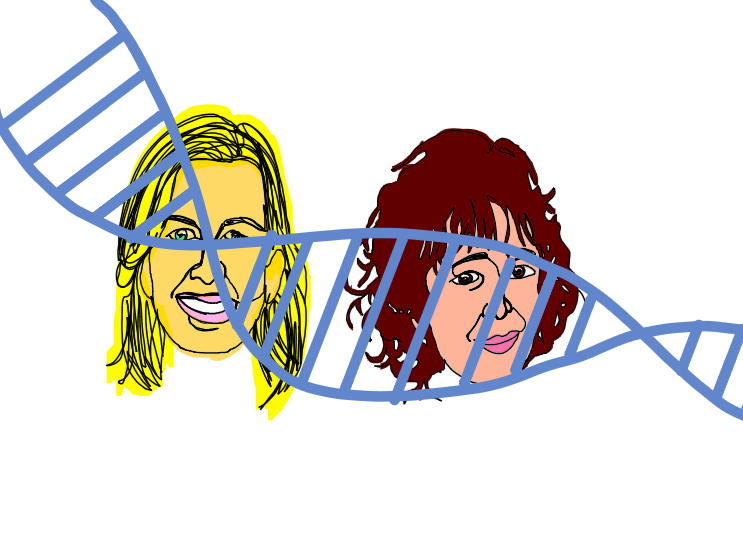CRISPR “Genetic Scissors” Wins 2020 Nobel Prize in Chemistry: A Tool for Rewriting the Code of Life
January 11, 2021
The 2020 Nobel Chemistry Prize has been awarded to two pioneers partaking in the field of Chemistry, Emmanuel Charpentier and Jennifer A. Doudna; their prize was “for the development of a method for genome editing.” Formerly known as CRISPR Cas-9 gene editing, CRISPR allows scientists to precisely cut out strands of DNA from organisms. In only a short span of 8 years, their invention has been used globally, and thousands of studies have been published, recording findings on genetically altered butterflies, mushrooms, tomatoes, and even humans.
The idea to create a gene editing technology came over the two by chance, when observing a microbes’ genetic makeup, specifically streptococcus pyogenes. At that time, microbiologist Dr. Charpentier and a group of her colleagues had noticed the repeating segments of RNA. This would later explain bacterial resistance to viral infections. The Cas 9 enzyme enables bacteria to recognize similar viral infections by storing parts of the viruses’ RNA. But, it is not only viruses that Cas 9 has been found to work on, in fact, scientists can now synthesize a piece of RNA that can do this job for them by programming the genetic material properly.
Before CRISPR, gene editing heavily relied on expensive components and cumbersome machines that proved bulky and ineffective. When it came to the question; how to alter genetics? Scientists were stumped. The journey towards the development of CRISPR had many trials and errors. Using the ancient system of antiviral infections, Dr. Charpentier and Dr. Doudna have cooperated together to make CRISPR a cost-efficient yet precise tool, available to people in the field. Fyodor Urnov, a gene editing scientist at the University of California, Berkley makes the statement that “We have never had a technology as powerful and versatile as genome editing with CRISPR”[4]. This technique has become a versatile method that impacts many other practices, such as recombinant DNA, PCR (polymerase chain reaction), and DNA sequencing.
Yet, some controversies are still circulating about whether or not CRISPR is safe to use on humans. Just last month, the international committee concluded that CRISPR was not mature enough to make alterations on a human embryo; but it also did not rule out the possibility that CRISPR could be used to repair life threatening mutations. While CRISPR may still be in its infancy, worldwide recognition has accelerated recent developments.. Perhaps in the future, CRISPR will be commonly used in society. David Liu, a CRISPR scientist at Broad Institute of MIT and Harvard tells people, “With new treatments for human genetic diseases already in patients, with early positive outcomes, the era of human genome editing has already begun, and Emmanuelle and Jennifer are two of the key pioneers responsible for initiating this new era.”[3] The Nobel Prize is only the start to a long road of accomplishments ahead.
[2] https://www.nobelprize.org/prizes/chemistry/2020/press-release/
[3] https://www.nytimes.com/2020/10/07/science/nobel-prize-chemistry-crispr.html
[4] https://cen.acs.org/biological-chemistry/gene-editing/CRISPR-genome-editing-2020-Nobel/98/i39


Shree Manivel '23 • Jan 19, 2021 at 2:16 am
Wow, this article was really interesting – I remember learning about CRISPR before, and it’s great to hear that Charpentier and Doudna have recently won a 2020 Nobel Prize! Well formatted and I love the specifics, great job with this article!